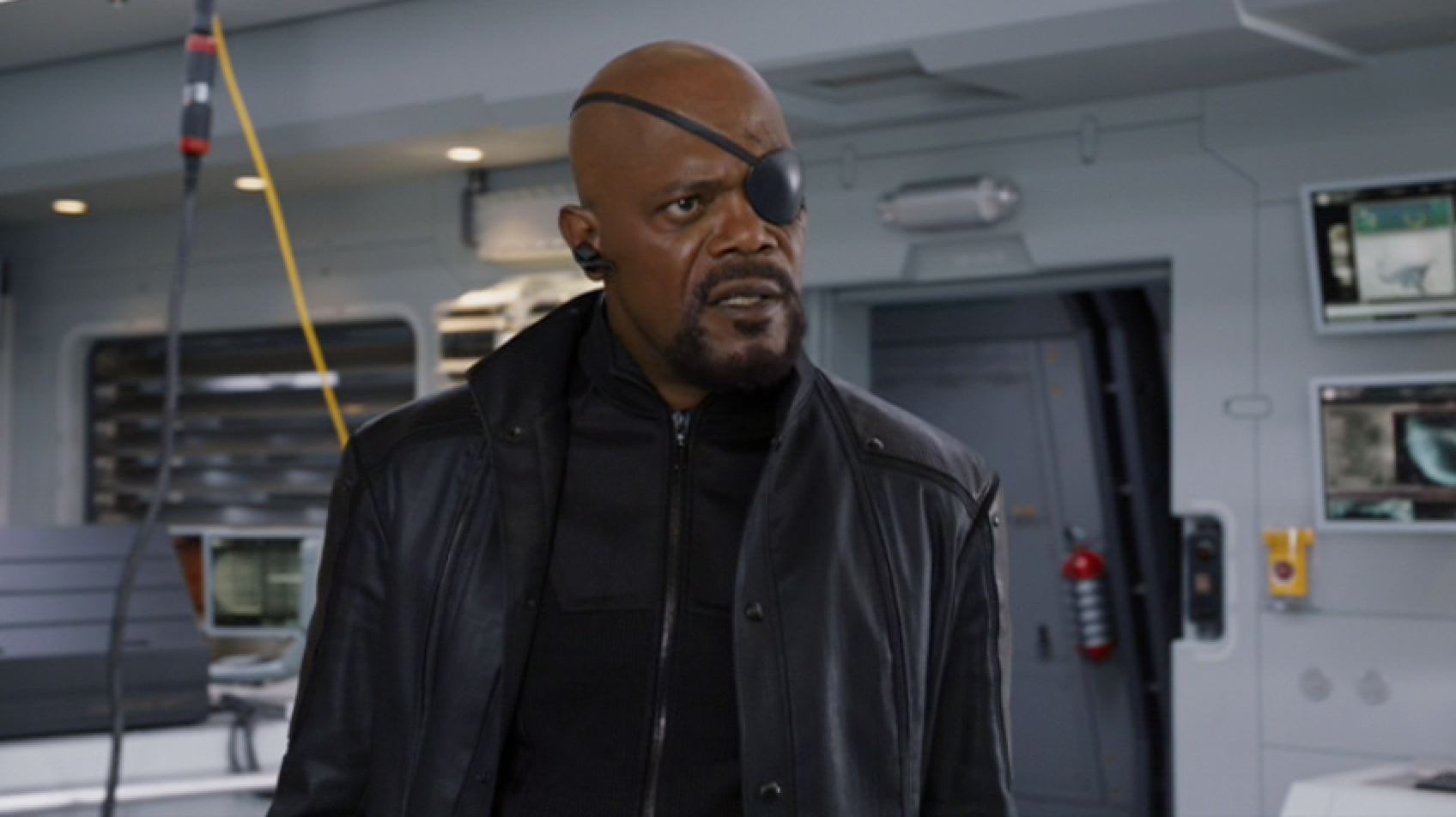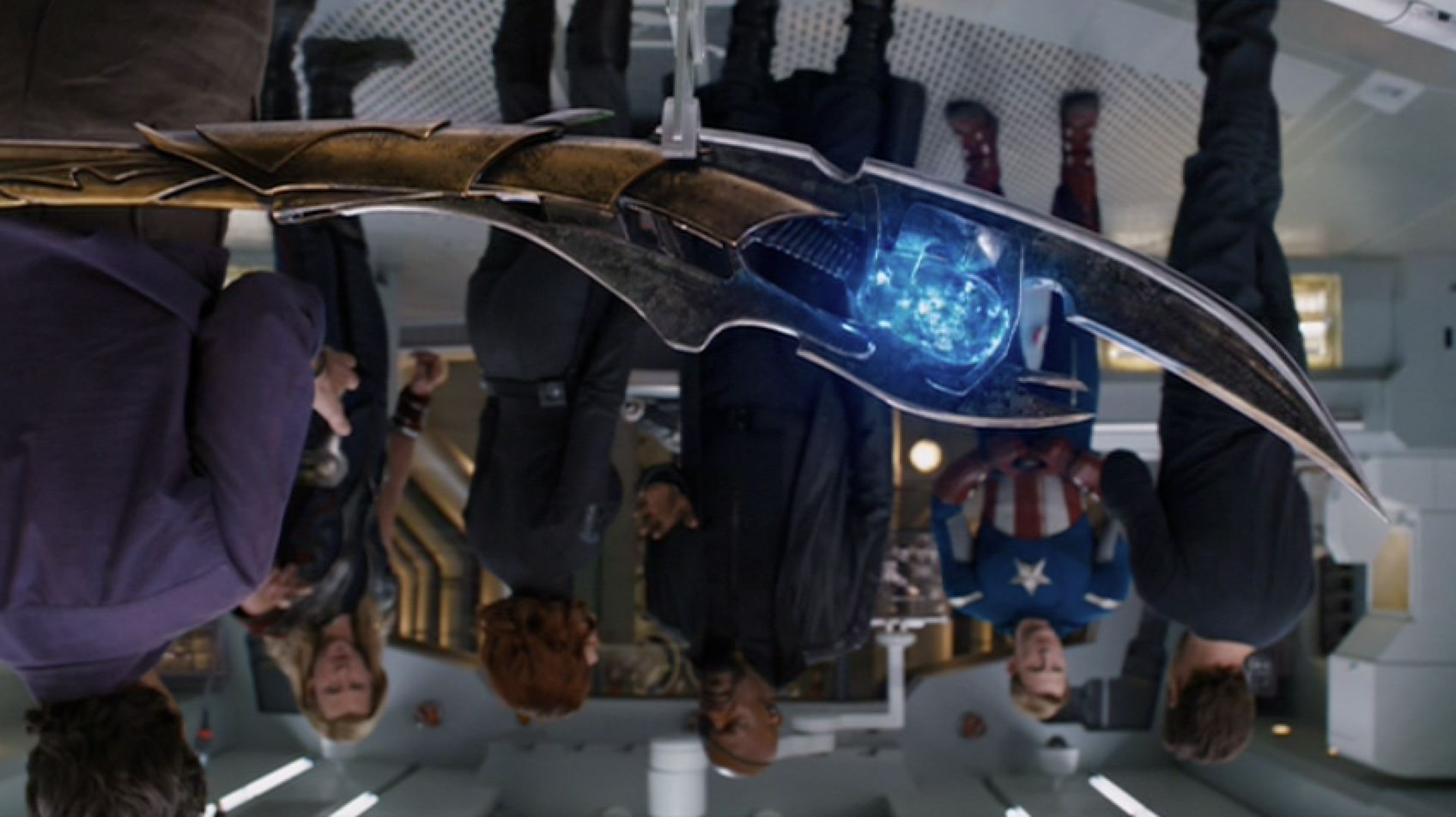The Avengers part 11
At The Avengers‘s midpoint, it suddenly becomes Watchmen. That is, it becomes a superhero narrative about the nature of a superhero narrative. It’s been many things up to this point, but now it folds in on itself and comments on itself. Suddenly, Tony Stark, Bruce Banner and Steve Rogers all discover that Nick Fury wants the Tesseract not to light the world but to build weapons of mass destruction. Fury, in his defense, says that, until Thor came along, SHIELD didn’t need weapons powered by the Tesseract. His argument is that we need super-weapons to fight against superpowers. Does this eliminate metaphor from The Avengers‘s screenplay? That is, can a screenplay about superheroes keep going if one draws attention to the fact that the superheroes are, in fact, superheroes?
This is, of course, a key problem of every superhero movie: with no metaphor, the superhero drama quickly becomes silly. Superman as an idea is tremendously powerful and appealing, but if you spend too much time dwelling on the physcial aspects of what exactly Superman is and how he might affect the world, that is, what if Superman were real, the story becomes about something other than the idea. This is one of the reasons why Batman has soared in the 21st century as a movie franchise while Superman has had trouble gaining traction: the Christopher Nolan Batman movies have largely taken the fantasy out of a fantastic piece of material and allowed Batman to operate without a metaphor. Batman can do that because it’s endemic to the character: he’s a real guy. That’s one of the reasons why it’s okay that Spider-Man fights characters as ridiculous as The Lizard: in order to justify an outlandish hero, you must give him an equally outlandish villain. (In my analysis of Batman and Robin I mention how the decision to make Mr. Freeze the antagonist of the movie was the decision that led the movie down its narrative rabbit hole: the entire movie had to be made ridiculous in order to justify its choice of bad guy.)
The Avengers, and the preceding Marvel movies, have done a great job of “grounding” their characters. Most importantly, they have put character first, superpowers second. It’s not that Tony Stark has a cool suit, it’s that Tony Stark has a cool suit. The Iron Man movies have made it explicit: the tool is not the man, and different men in the same suit accomplish very different things. Bruce Banner dreads the Hulk, but Tony Stark thinks Bruce should let his freak flag fly: they’re different guys given similar powers, and they respond in different ways. That seems pretty obvious, but it is, in essence, the key to the Marvel approach. The typical superhero story begins “What if a guy got superpowers?” But Marvel has always started with “What if this particular guy got superpowers?”
But back to the earlier question. If a movie raises the stakes on its own metaphor, is that metaphor still a metaphor, or does it become literal? The Avengers knows it’s taking a big risk in doing so, and check out what the director does. In the midst of the big scene where all the characters yell at each other about how screwed up everything is, the director literally turns the camera upside-down to show how we’ve gone through the looking-glass, so to speak. Fury tells us that SHIELD wants super-weapons to deal with supervillains, and everyone’s reaction is to shout him down, when, in fact, they’re all part of the same problem. Tony Stark’s megalomania, Steve Rogers’s patriotism, Bruce Banner’s out-of-control alter ego, Thor’s unruly kin, everyone has contributed to the problem at hand.
The metaphor mutates but does not disappear: SHIELD’s Tesseract-powered weapons are simply a metaphor for what we already have: weapons that humanity has actually developed in order to deal with super-powers, real-life super-powers. The metaphor is suddenly strengthened: in the real world there are real super-powers who really do go around screwing things up for everyone and destroying the world while beating each other up. In this moment, the Avengers become their own worst enemies. They, separately and collectively, have brought disorder to their world.

